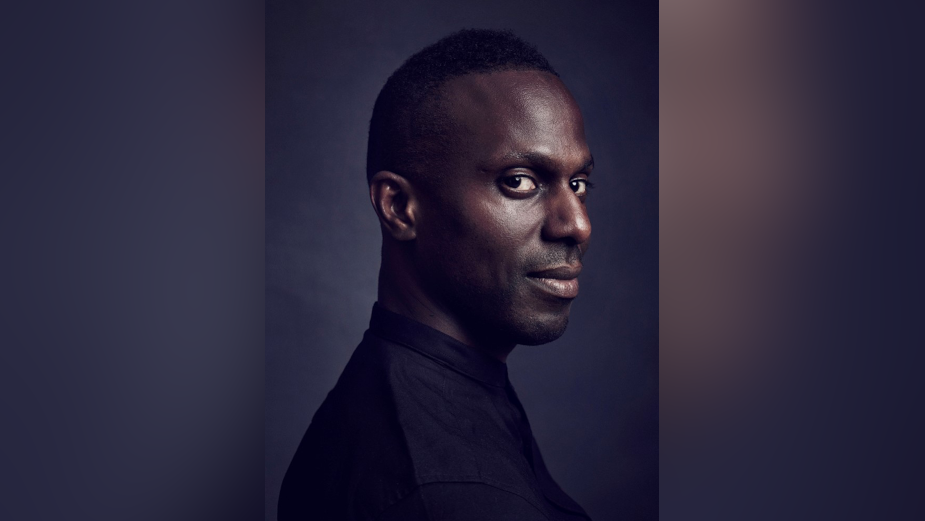
Production Line: Re-Writing the Rules of Live Event Production with Aaron Raybe

UK director of experiential & live events at Momentum Worldwide Aaron launched Destiny’s Child and Def Jam in the UK and had over 15 years’ experience in the UK, USA and Europe.
He works across clients including American Express, SAP and Microsoft delivering conferences, exhibitions, experiential and live events.
Prior to joining Momentum he led the production team at Secret Cinema, building brand experiences across multiple film franchises.
Passionate about growing the next generation of people of colour, Aaron is an active Mentor in this community and with MEFA. Accolades include being named on the 40 Over Forty list and Pitch Magazine Supermen 100.
LBB> What lasting impact has the experience of the pandemic had on how you and your agency think about and approach production?
Aaron> At Momentum, health & safety is a big priority, and as a result we are one of a few agencies that have IOSH Trained Production Managers as standard. As the pandemic hit, members of our live event team sat/passed the World Health Organisation Covid-19 Mass Gathering course. This allows us to identify ways to increase the safety of participants through the application of mitigation measures.
LBB> Aside from Covid-19, what have been the most disruptive forces to hit agency production in the past few years?
Aaron> I remember the 2011 Icelandic ash cloud crisis, which put a stop to international travel and, as a consequence, lots of events were cancelled. I would say that was the first time we had a mass adoption to hybrid or ‘hub and spoke’ events. We had a central location, say London, with 200 people, then local events by country, with 100 people each. Using satellite technology or ISDN lines (broadband wasn’t a real thing then), we would connect the whole event together so the audience could share in the experience in real-time. Costly, but highly effective!
LBB> A good producer should be able to produce for any medium, from film to events to digital. Do you agree or disagree with this statement? Why/why not?
Aaron> The game is about levels, so it depends on what level you’re pitching this at. Could a live event producer deliver a blockbuster movie? Probably not, and vice-versa.
LBB> And leading on from that, when it comes to building up your team at the agency, what’s your view on the balance of specialists vs generalists?
Aaron> It is important to have a blended mix of specialists and generalists. Generalists are good for events at a certain size and profile. Once you go over that threshold, then I’m in favour of specialists—Event Ops, production management, technical management, staffing ops, etc. This creates focus and specific deliverables. In the event of a crisis or quick turnaround projects, I tend to lean towards specialists, as specific skills trump general skills. The real trick here is having strong project management to coordinate all the moving parts to ensure a smooth delivery.
LBB> What’s your own pathway to production? When you started out, what sort of work were you producing and what lessons have stayed with you in that time?
Aaron> I started as a sound engineer trained on Martin W8, Nexo Alpha and Funktion One systems. I was producing concerts, album showcases, large after-show parties for the Sony Music, BMG, Def Jam etc. This was at the time ‘Black Music’ became a force, and because I culturally had the ear and feel for the music and could respond to the specific needs of the artist/label, I was in great demand. I produced Destiny’s Child’s first show in London, Jay-Z’s Blueprint concert and Lauryn Hill’s tour parties. Great fun! The biggest lesson I learned was that no matter what challenge or issue came my way, I always deliver!
LBB> If you compare your role to the role of the heads of TV/heads of production when you first joined the industry, what do you think are the most striking or interesting changes?
Aaron> When I started out, HODs and production directors were all white males who were hard as nails, drank diesel and spat sawdust! It was a difficult environment to grapple with and I had to be resilient and let my work ethic do the talking. Over the passage of time we’ve seen more diversity and conscious inclusion in Live Events, although there is still a lot of work to do to improve this. We have also become more human-centric, putting the needs of colleagues first. Live Events is a highly stressful environment, so putting people first, in my experience, has always yielded a better result.
LBB> There are so many models for the way production is organised in the advertising industry – what setups have you found to be the most successful and why?
Aaron> The most successful model I’ve found is for creative and production to work hand in glove. By doing so, the production team is no longer the dream killer to the creative idea. What they provide is the how-to. If both disciplines are on the same table at the same time with the same objective, you can literally create magic!
LBB> When working with a new partner or collaborator, how do you go about establishing trust?
Aaron> I just go in with open arms. This approach has served me well so far.
LBB> What are your thoughts on the involvement of procurement in production?
Aaron> As an agency, we are the buyer and seller of services, so having robust procurement practices is crucial. We see ourselves as custodians of our clients’ budgets, so it’s imperative that we work together to ensure we can return the best value for their pound, shilling and pence. Conversely, when we are doing the procuring, we are focused on detailed specifications so we can go out to our partners with a robust triple bid. This ensures we receive the highest specs for the best price. My one piece of advice for client procurement teams is to work closer with agencies to establish what you need versus what you want. This will help navigate challenging questions, speed up the process and save money for everyone.
LBB> When it comes to educating producers how does your agency like to approach this?
Aaron> When I took over the reins of the Live Event Division back in 2018, the first thing I did was run a skills analysis. This enabled me to look at what skills we had as a team, but, more importantly, what we didn’t have. I then put in a structured training programme to address the needs of the team. This included IOSH managing safely courses and a sound engineering course with Brit Row, amongst others. I think producers and the industry at large would benefit from this approach, and in the future I would love to see CPD for Production Professionals.
LBB> What new skills have you had to add to the team as a result of the pandemic?
Aaron> To serve the needs of our clients we built our own proprietary virtual platform, VXi, and to ensure we can deliver great content-driven experiences, we’ve invested in broadcast training. This is super detailed and covers everything from production processes, colour and colour space, lighting for video, vision mixing, telling stories with pictures and sound, and directing. Not only was the training for the live event team, but our technology team, creative team and account team have all sat through various modules. By doing so, we’ve unified the business in the direction of Virtual Events. We are now seeing great outcomes feeding into our latest broadcasts.
LBB> Should production have a seat in the c-suite - and why?
Aaron> Absolutely. If business outcomes manifest themselves in deliverables that are production-related, then having c-suite production experts makes business sense. I, myself, sit on the UK board here at Momentum, so being able to bring this point of view to the table has transformed our business and, as a result, our output has improved.
LBB> How have you approached integrating data with production workflows and processes? And, generally, how has data and the fact that we have constant live feedback on content performance changed production?
Aaron> Data is our currency for live events. If we don’t know our audience needs, how will we serve them? We always start with data and insights, which we integrate into the user journey and through feedback mechanisms at the end of the event. By understanding the needs of our audience we can anticipate and deliver great experiences. Feedback on content-driven experiences and the ability to translate data quickly means we can make adjustments across all touch points for the benefit of the experience.
LBB> Clients’ thirst for content seems to be unquenchable - and they need content that’s fast and responsive! What’s the key to creating LOTS of stuff at SPEED - without sacrificing production values? Is it even possible?
Aaron> The key is in the planning. Content is all around us, so whatever the campaign, understand why you need it and how you want it to perform, then bake it in at every stage of the process. Then create a release schedule to seed the content into the marketplace. As an example, catch lots of BTS content to be used as a promotional tool. This can drive up your attendance rates if done correctly. Then any live content can be used post-event to extend the reach and lifecycle of the event. Add tracking and data to this and you can understand the needs of the audience by seeing what has been watched and why, or better—what hasn’t and why. This data and insight can then be used to improve on event two.
LBB> To what extent is production strategic - traditionally it’s the part that comes at the ‘end’ of the agency process, but it seems in many cases production is a valuable voice to have right up top - what are your thoughts/experiences of this?
Aaron> This goes back to having production expertise in the c-suite and having creative and production hand and glove. It makes good business sense. By working this way, my experience has been a positive one. Secret Cinema is probably the best example of this. When I worked on Back to the Future and Star Wars, we were right up top and as a result delivered two of their best productions to date! Production professionals are pragmatic bunch, so being able to act as sounding board without being a dream killer should be the strategic decision all companies should make.
LBB> What’s the most exciting thing about working in production right now?
Aaron> Re-writing the rules of live event production. By and large, we all inherited the industry we work in and were unable to drive radical change. The pandemic has been brutal to our industry, but those who are fortunate enough to still be here have an incredible opportunity to determine its future. I anticipate some incredible hybrid events will be delivered and new ways of working discovered. I’m really looking forward to the ‘New Different’.
LBB> And what advice would you give to an aspiring agency producer?
Aaron> If you agree with what I’ve said, then call me… I’m hiring. ☺











